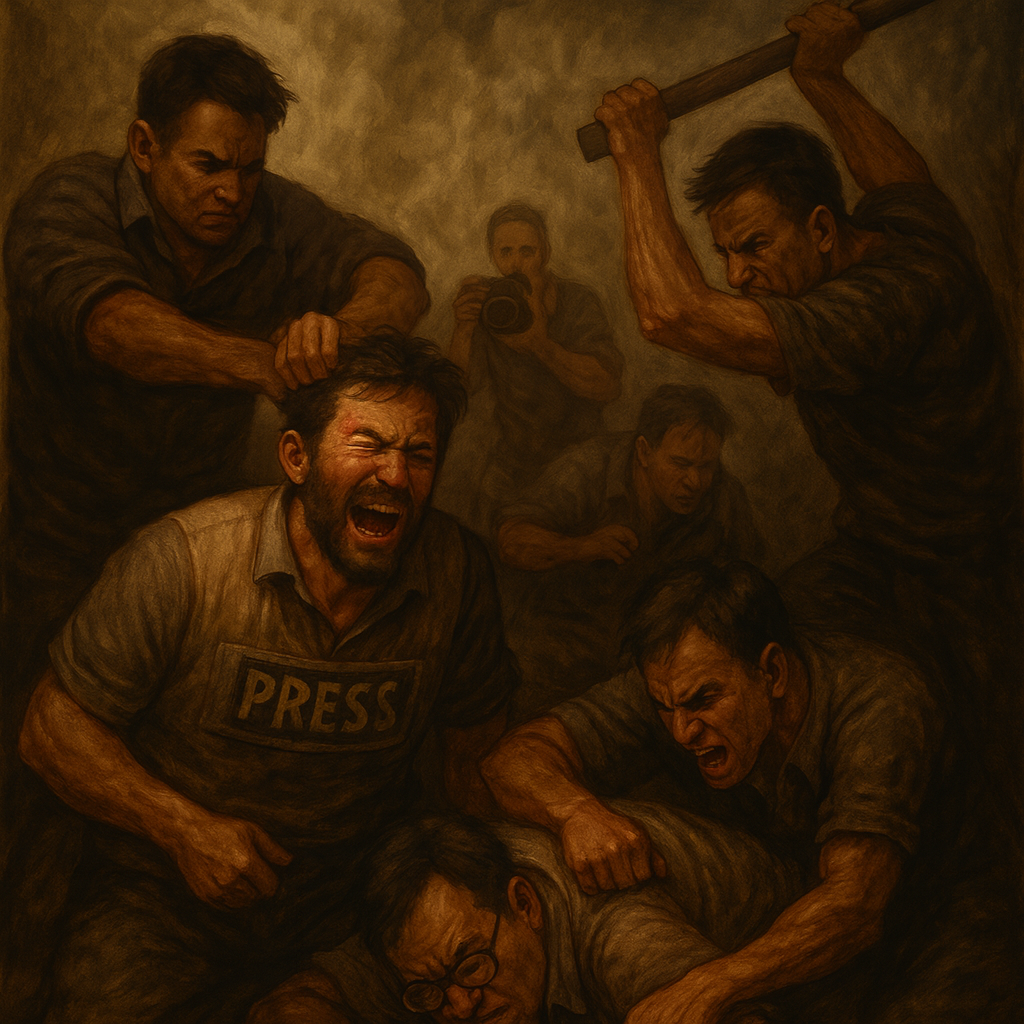At least two journalists were hacked to death, while dozens more suffered assaults, threats, harassment, and torture during the first year of Muhammad Yunus–led interim government.
Transparency International Bangladesh (TIB) records indicate that from August 2024 to July 2025, three journalists were killed while on duty, and 496 incidents of harassment were reported.
However, it is important to note that journalist Pradeep Kumar Bhowmik was killed on 5 August. The incident occurred just days before the interim administration took office on 8 August.
The most recent victim was Asaduzzaman Tuhin, a staff reporter for Daily Pratidiner Kagoj, who was fatally attacked while filming an altercation on the Dhaka–Tangail highway near Gazipur’s Chandna Circle on Thursday.
Surveillance footage shows a man slapping a woman at approximately 6:58pm. Tuhin began recording the incident on his mobile phone, prompting several machete- and axe-wielding youths to pursue him.
An eyewitness, Shamim, stated that Tuhin sought refuge in a nearby shop, only to be brutally hacked to death in public before the attackers fled.
On the same day, another journalist, Anwar Hossain Sourav of Bangladesher Alo, was viciously assaulted in Gazipur’s Sadar Thana area. A video of the attack shows him being dragged, beaten with sticks, and having his legs crushed with bricks—all in the presence of a police officer.
The officer eventually intervened, rescuing the journalist and taking him to Shaheed Tajuddin Ahmad Medical College Hospital.
According to human rights organisation Ain o Salish Kendra (ASK), 102 incidents of journalist harassment were recorded in the first quarter of 2025 alone.
Condemning the attacks, the Bangladesh Federal Union of Journalists (BFUJ), Dhaka Journalist Union, and Gazipur Press Club demanded that the government take urgent measures to ensure a safe working environment for journalists.
Acting BFUJ President Obaidul Rahman Shahin told TIMES of Bangladesh, “We believed that journalists would be able to operate without fear after the previous regime’s fall. Yet, harassment continues unabated.”
Saiful Alam Chowdhury, associate professor of media, communication and journalism at Dhaka University, highlighted the long-standing issue of unresolved journalist killings and called for sweeping legal reforms.
“This violence must end,” he said, urging enforcement of the Whistleblower Act 2011 and advocating for systemic reforms within the media sector involving all stakeholders.
Sam Jahan, convener of Bangladeshi Journalists in International Media (BJIM), noted that despite improvements in Bangladesh’s Press Freedom Index, genuine freedom of expression remains elusive.
He said self-censorship among journalists has grown, as many media houses are under the control of influential groups with armed support. Though the interim government has discussed forming media commissions, Jahan criticised the lack of actual enforcement.
He further observed that media outlets previously aligned with the former ruling party have now been politically absorbed, while journalist associations remain highly politicised.
Citing the Sagar-Runi murder case – where the verdict has been postponed more than 100 times – Jahan underscored the systemic collapse in securing justice for journalists in Bangladesh.


